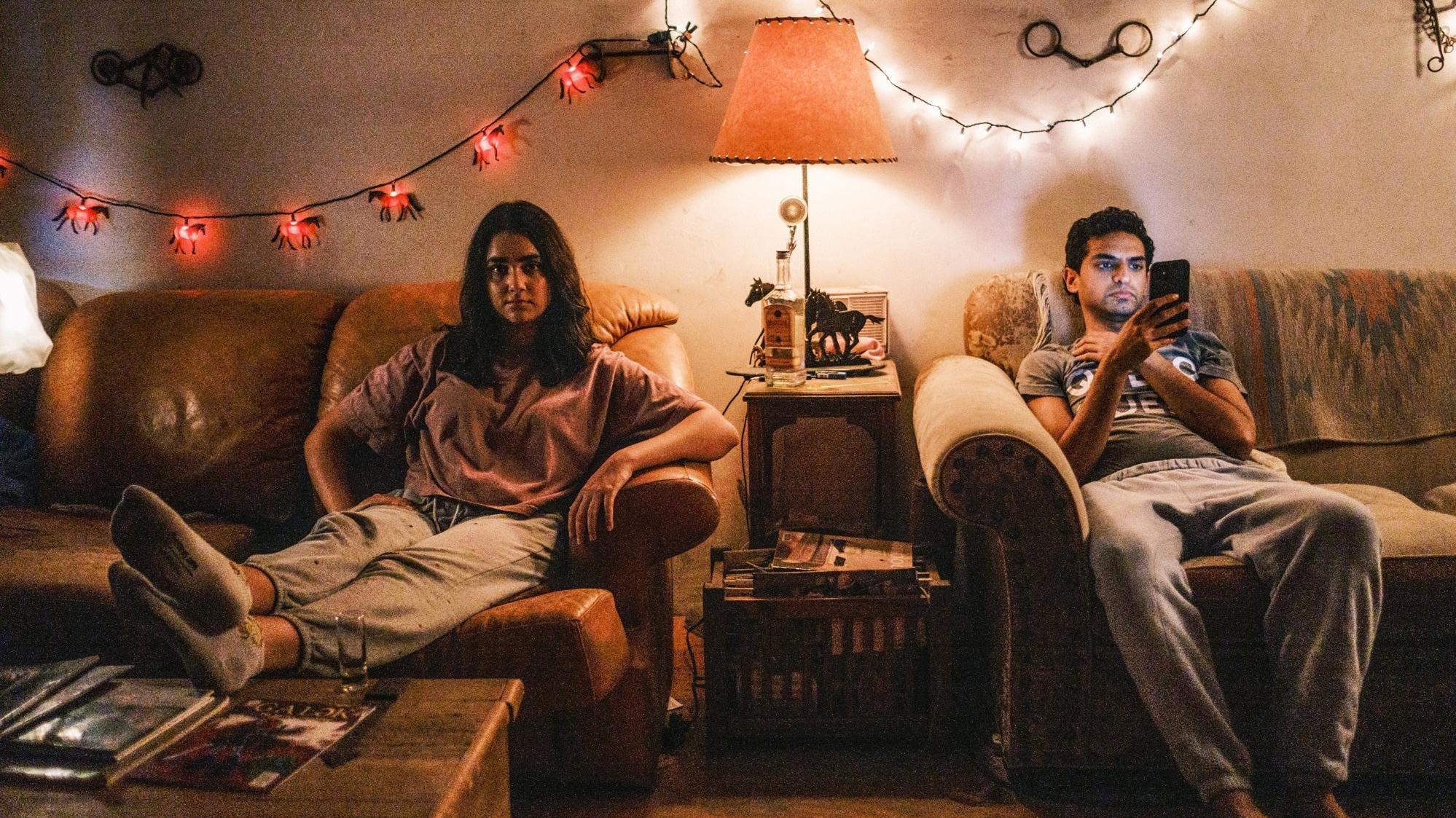In 7 Days, two mismatched singles seek common ground during COVID
Roshan Sethi's sly, subversive romantic comedy turns an arranged date into an unexpected opportunity for self-discovery

Love in the time of COVID isn’t a particularly novel concept in terms of the pandemic-set films that have been released over the past couple years. Yet, there is a relatability to it, a commonality that we’re all sharing in some shape or another. It’s that level of accessibility alone that makes 7 Days interesting. Even if it seems like the early-pandemic world featured in the film is behind us, Roshan Sethi’s debut feature provides something more to cling to—a genuine exploration of love and loneliness through the lens of a culture frequently depicted through the lens of traditional values and arranged marriages.
As a romantic comedy, 7 Days hardly circumvents a cinematic lexicon of time-honored tropes, but its skill in dismantling stereotypes, sexist beliefs, and even the process of falling in love offers a fresh and charming rejoinder to the cynicism of both its own genre and the emerging repetition of pandemic-set films.
Cowriter Karan Soni (Deadpool) stars alongside frequent collaborator Geraldine Viswanathan (Bad Education) as Ravi and Rita, two contemporary Indian Americans whose traditionalist parents set them up on a date in a last-ditch effort to marry off their respective children. Meeting for a picnic in an empty reservoir, the two of them navigate first-date awkwardness with the kind of good-natured, understated humor that’s become a signature for producers the Duplass brothers. But even though it’s clear that the devout mother’s Ravi is no match for the acerbic Rita, who would clearly prefer to be anywhere else, the polite formality that would have ended their date gets interrupted when the CDC issues a blanket alert for people to shelter in place as COVID-19 reaches its pandemic stage.
When Ravi encounters multiple problems with his exit strategy, he reconnects with Rita, who he unexpectedly discovers is not the pescatarian described in her dating profile but a beer drinker who likes fried chicken. Despite his dismay, he reluctantly accepts her offer of a couch to sleep on, though not before calling his mom (Gita Reddy) to apprise her of the situation. He subsequently finds himself trapped in an increasingly uncomfortable scenario that Sethi cleverly shoots like Ravi is Wendy Torrance experiencing the Overlook Hotel’s gauntlet of horrors in The Shining. He not only hears a sexually explicit phone call Rita engages in with Daddy (Mark Duplass), her previously undisclosed boyfriend, but discovers a sex toy while seeking refuge from her libidinous conversation.
